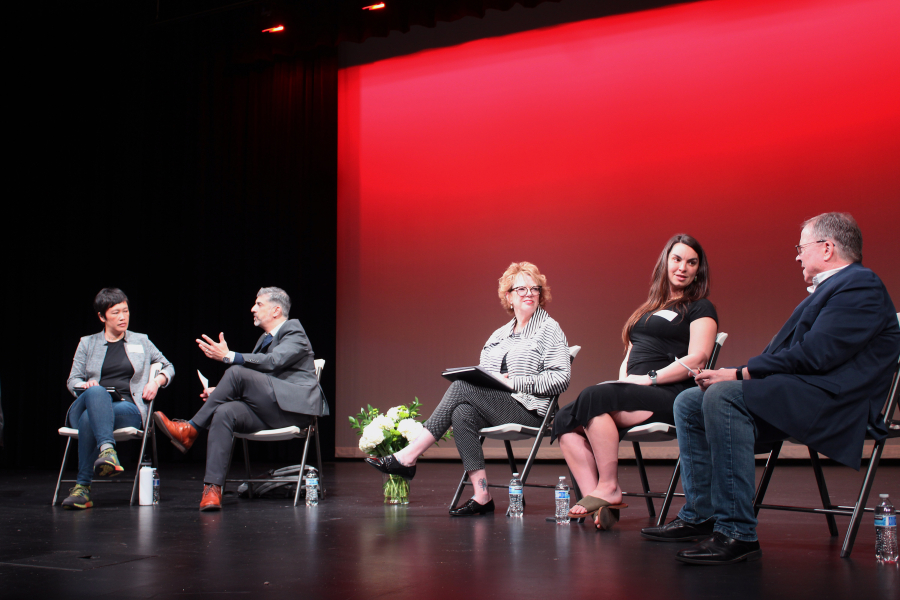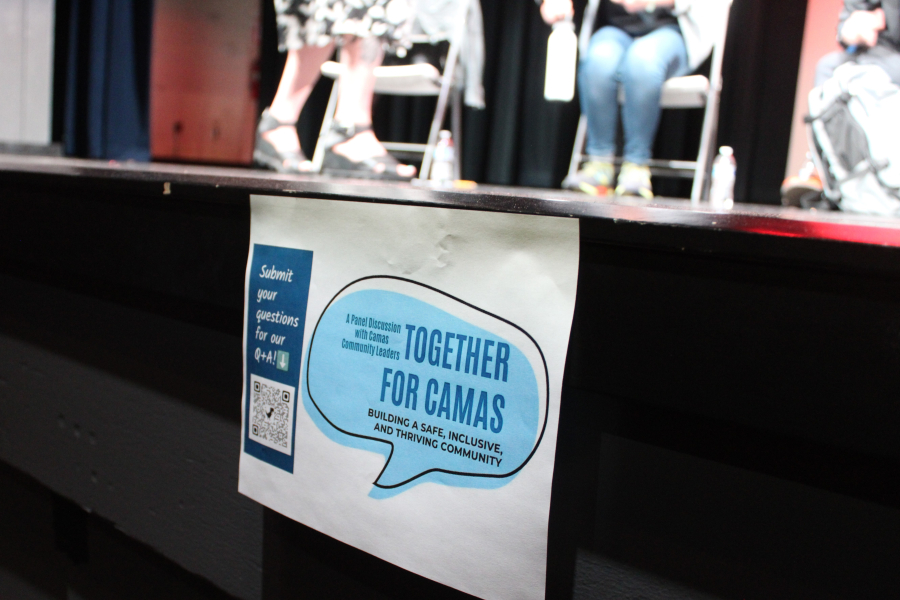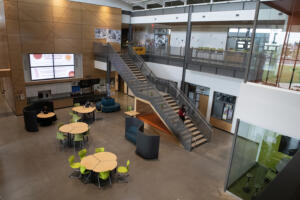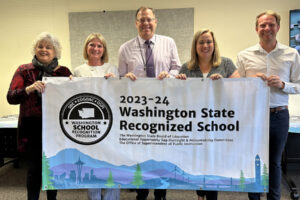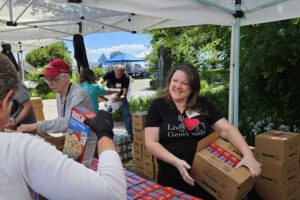Three weeks after a federal judge blocked the Trump administration’s attempt to punish public K-12 school districts over diversity, equity and inclusion programs, a group of Camas school, city and business leaders gathered inside the school district’s Joyce Garver Theater to talk with community members about what they are doing to help all Camasonians feel included, safe and like they have a sense of belonging.
Sponsored by the Camas School District and its Community Equity Forum group, the event featured Camas schools Superintendent John Anzalone, Port of Camas-Washougal Executive Director Trang Lam, Camas Mayor Steve Hogan, Camas City Councilor Marilyn Boerke and downtown Camas business owner Melissa Peake.
Katie Seidl, the school district’s opportunity access and inclusion coordinator, moderated the “Let’s Talk Together” event and took questions from some of the roughly 50 people who attended.
Several of the speakers shared personal stories highlighting the benefits of building more inclusivity, diversity and equity in a community like Camas, which prides itself on its small-town feel but can feel less than welcoming for people who fall outside the town’s white, upper middle-class, heterosexual majority.
“I don’t live in Camas,” Seidl said. “When I came to work here 11 years ago, I asked a question (common) in the queer community: ‘Do you feel comfortable holding your spouse’s hand here?’”


